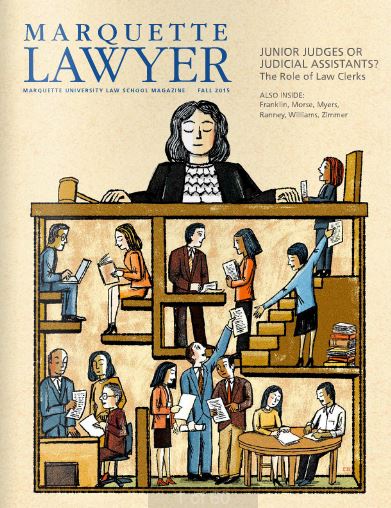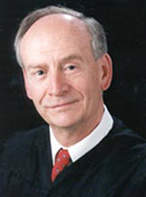New Marquette Lawyer Spotlights the Role of Law Clerks — and Much More
 Judicial assistants or junior judges? That was the key question at a recent gathering at Marquette Law School of experts on the role of law clerks who work for judges in many courts, including U.S. Supreme Court justices. The Fall 2015 Marquette Lawyer magazine highlights excerpts from the presentations at that conference in a cover story that sheds light on the important but rarely spotlighted role of clerks (the full symposium is available in the Law Review).
Judicial assistants or junior judges? That was the key question at a recent gathering at Marquette Law School of experts on the role of law clerks who work for judges in many courts, including U.S. Supreme Court justices. The Fall 2015 Marquette Lawyer magazine highlights excerpts from the presentations at that conference in a cover story that sheds light on the important but rarely spotlighted role of clerks (the full symposium is available in the Law Review).
Shedding light is also a prime goal of several other pieces in the new magazine.
Charles Franklin, professor of law and public policy and director of the Marquette Law School Poll, examines the muted level of support that Gov. Scott Walker received from Wisconsin voters during his unsuccessful bid for the Republican presidential nomination. Weak support from independent voters receives particular attention from Franklin in his piece, “Downtown on the Home Front.”
Joseph A. Ranney, Marquette Law School’s Adrian P. Schoone Visiting Fellow, is working on a book about the role that states have played in the evolution of American law. In several pieces posted on the Marquette Law School Faculty Blog and printed in the new magazine, Ranney sheds light on the Badger state’s legal past, describing “Wisconsin’s Legal Giants.”


